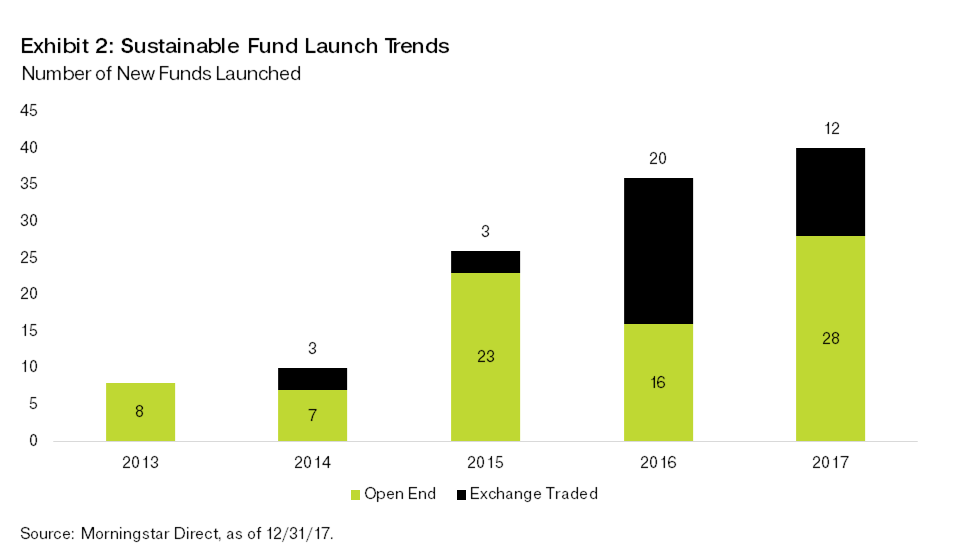4. Choose From A Growing Set Of Investment Tools
The inherent complexity of the ESG landscape doesn’t lend itself to a common vernacular or a one-size-fits-all approach to sustainable investing, and the space has evolved to encompass a wide range of tools that investors can use to express their own viewpoints within a portfolio. The three most common approaches under the larger sustainable investing umbrella are:
• Socially responsible investing: Socially responsible investors can choose from vehicles including mutual funds and ETFs that exclude sectors, industries, companies, and categories of investments not aligned with their values.
• ESG integration: ESG-integration investors have access to a wide range of products that explicitly and demonstrably integrate ESG considerations into the investment process.
• Impact and thematic investing: Impact and thematic investors allocate capital with a dual purpose of seeking financial returns and positive social and environmental outcomes.
Launches of new ETFs and mutual funds with a sustainability focus are on the rise and run the gamut of geographies, as well as active and passive approaches. While the sheer number of strategies available today may appear overwhelming on the surface, they also make it easier for investors to find solutions that match the sustainability targets they’ve set for their portfolios.

5. Be An Active Owner To Enhance Long-Term Value
Should ESG investors own oil and gas companies or gun manufacturers? The early days of sustainable investing focused on divestment and socially responsible investing approaches that screened out industries and companies incompatible with investors’ views. Today this is shifting to an emphasis on active ownership and driving positive change from within a company. In a sense, it’s not what you own, it’s how you own it.
Proposing and voting on shareholder resolutions is one way active owners engage with companies. Thanks to shareholder activists—primarily pensions and social policy investors—resolutions concerning sustainability issues such as executive compensation, the environment, diversity and gender equality, and human rights now make regular appearances on proxy ballots.
Beyond proxy voting, institutional investors and asset managers are employing the significant leverage they have with investee companies to engage management teams in a dialogue about sustainability issues. Asset manager BlackRock, for example, issued a statement in 2017 that acknowledged the risks of climate change to the companies in which it invests, and outlined its approach to working with them on the ESG factors that may impact financial performance, as well as circumstances under which it would consider voting in favor of climate-related resolutions.
Focusing On The Big Picture








